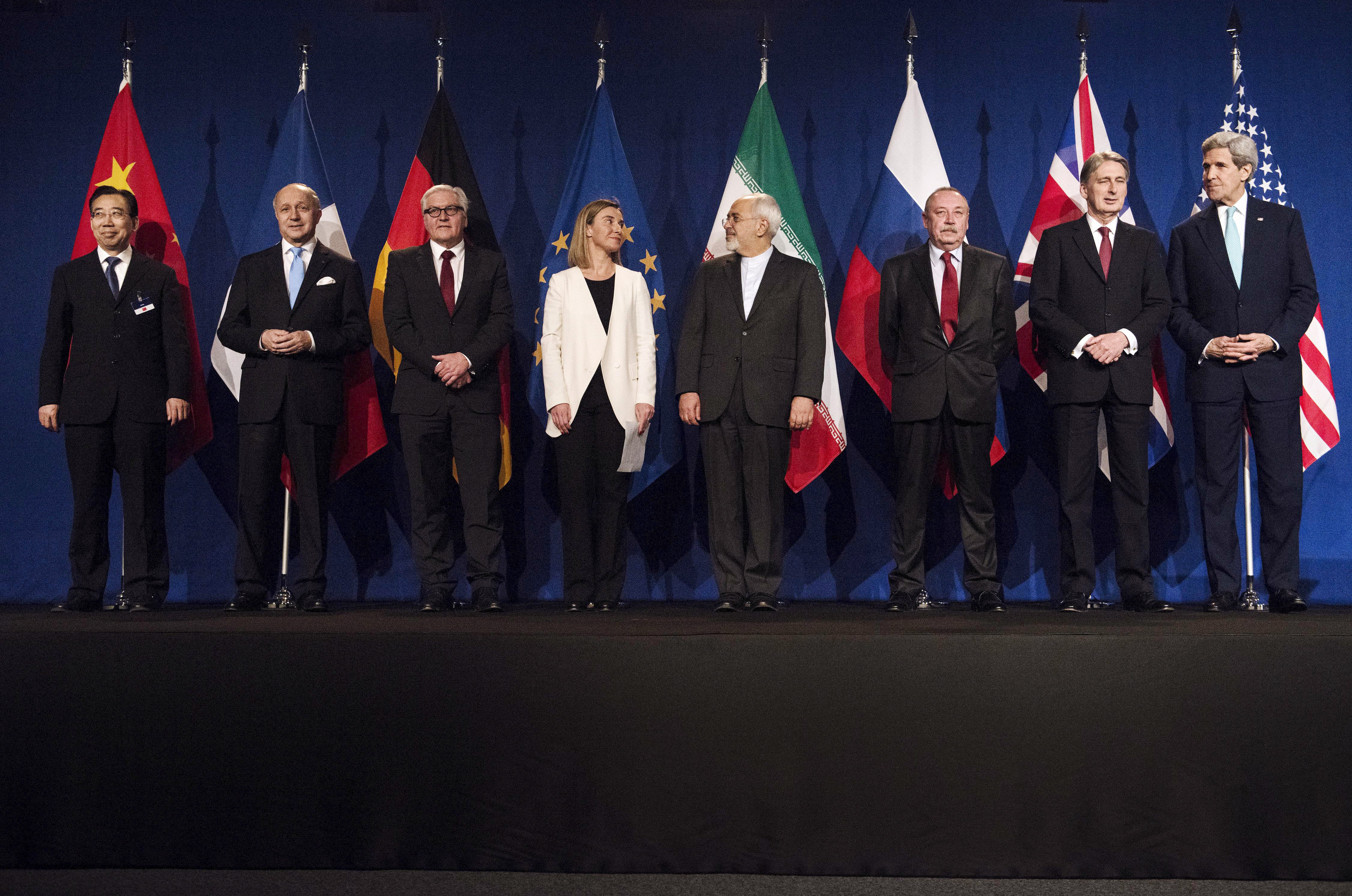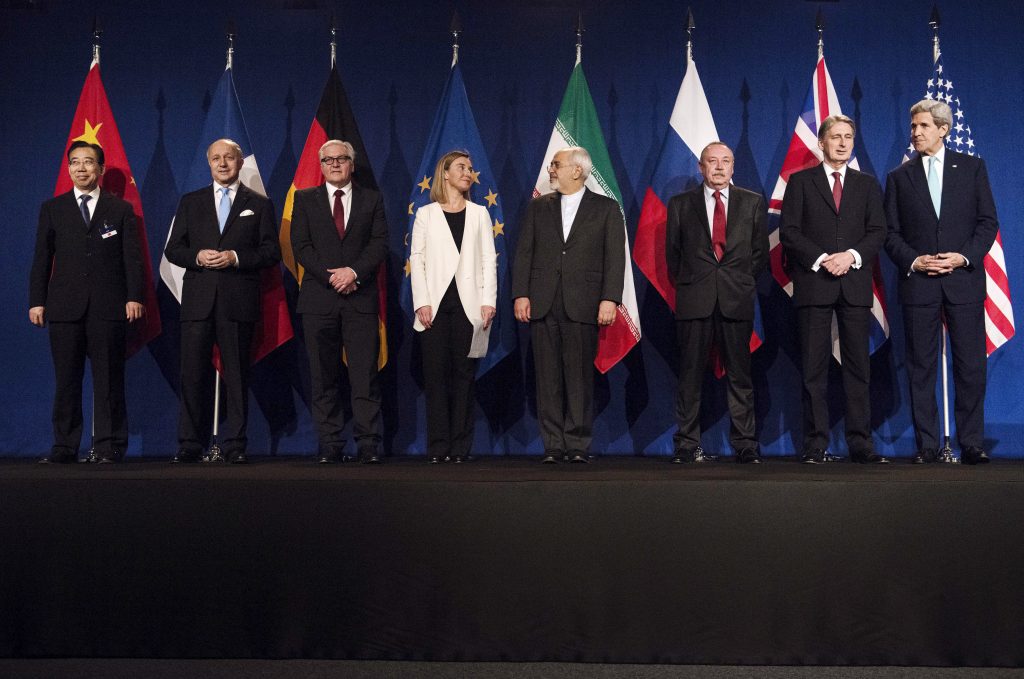 Two factors made it possible to reach the nuclear agreement with Iran. First, unity was key. The agreement is also a transatlantic success. During the negotiations, the P5+1—that is, the United States, France, Great Britain, Germany, Russia, and China—and the European Union remained united in the goal of preventing the nuclear armament of Iran. Second, we limited the negotiations to this aim. The Joint Comprehensive Plan of Action (JCPOA) deals with the nuclear issue, nothing else. We are now embarking on a new chapter with implementation of the deal. Hard works lies ahead. In this effort, we must preserve our unity, but also adapt and expand our strategy on the second point.
Two factors made it possible to reach the nuclear agreement with Iran. First, unity was key. The agreement is also a transatlantic success. During the negotiations, the P5+1—that is, the United States, France, Great Britain, Germany, Russia, and China—and the European Union remained united in the goal of preventing the nuclear armament of Iran. Second, we limited the negotiations to this aim. The Joint Comprehensive Plan of Action (JCPOA) deals with the nuclear issue, nothing else. We are now embarking on a new chapter with implementation of the deal. Hard works lies ahead. In this effort, we must preserve our unity, but also adapt and expand our strategy on the second point.
Iran first has to do its homework so the deal can be implemented. The sanctions will gradually be lifted only if the International Atomic Energy Agency (IAEA) certifies that Iran has met its obligations regarding disclosure. But the P5+1 also has work to do. We have to set up the Joint Commission, which will monitor compliance, and make it operational. We want to be prepared for any potential snapback of the sanctions. Europe and the United States must coordinate their steps toward lifting the sanctions. The IAEA, in which we have absolute confidence, is doing a tremendous job. But we want to strengthen it even more with additional resources. The IAEA will be our watchdog in this game. Since 2013, Germany has already provided the Vienna-based agency with some $2.7 million, with more to follow.
Our message to Iran is clear: The P5+1 will remain united. We will live up to our part of the deal. At the same time, we will rigorously monitor Tehran’s compliance. We are confident: If Iran tries to cheat, we will find out. The mechanisms are there. And if Iran cheats, we will act swiftly.
However, while limiting the talks to the nuclear issue was necessary to get the deal done, we now need to reach beyond and focus on the region. The humanitarian disaster and the flood of refugees from the Middle East to Europe strikingly illustrate how urgently we need a solution for Syria, for Yemen. Iran’s destabilizing policy is a contributing factor in these crises; its rhetoric against Israel is despicable and abhorrent. Iran’s support for terrorist organizations exacerbates the situation in this conflict-ridden region. Therefore, we must respond to Iran’s behavior with clarity and decisiveness. But that also means we have to talk to Tehran. They are difficult to deal with, no doubt. But it is simply hard diplomatic logic that we cannot ignore a country of eighty million people situated in the crisis belt of the Middle East when we talk about Syria. Even if we don’t expect Tehran’s behavior to change immediately, the successful implementation of the JCPOA could serve as the basis for broader engagement with Iran over time.
In short, our strategy should be threefold: vigor in implementing the deal, decisiveness in confronting Iran’s behavior in the region while talking to Iran (that’s what diplomacy is about), and leaving the door open for further engagement in the future. Hard, challenging work lies ahead and we don’t expect to see immediate results when it comes to foreign policy. We will only succeed if we maintain the unity that got us to the conclusion of the JCPOA. We need all—transatlantic—hands on deck. We will be sailing through rough waters and stormy days. Let’s set sail and chart our course!
Peter Wittig is Germany’s Ambassador to the United States. Follow him on Twitter @AmbWittig.
Image: From left to right: Chinese Ambassador to the United Nations Wu Hailong, French Foreign Minister Laurent Fabius, German Foreign Minister Frank-Walter Steinmeier, European Union High Representative for Foreign Affairs and Security Policy Federica Mogherini, Iranian Foreign Minister Javad Zarif, Russian Deputy Political Director Alexey Karpov, British Foreign Secretary Philip Hammond, and US Secretary of State John F. Kerry arrive for nuclear talks in Lausanne, Switzerland, April 2. Iran and world powers reached a framework on curbing Iran's nuclear program that will allow further negotiations towards a final agreement. (Reuters/Brendan Smialowski)
